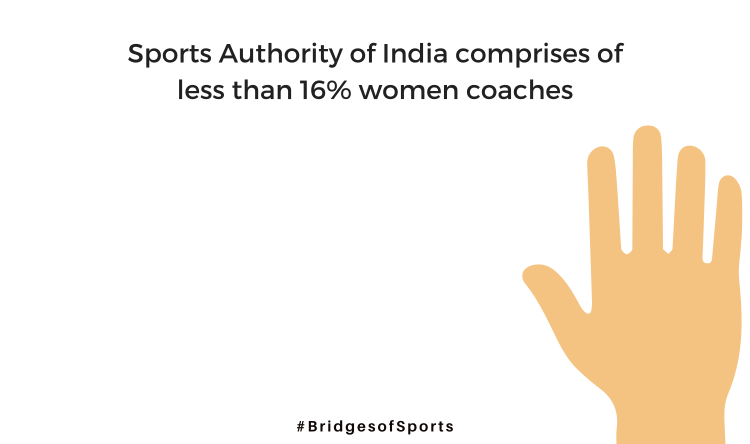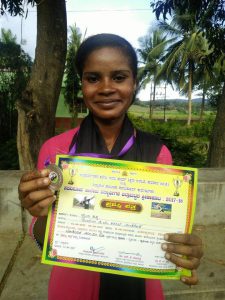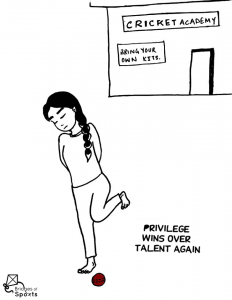The gender representation in Indian sports sports is skewed towards dominant prescience of male members. Women coaches constitute less than 16 per cent of the total strength of coaches at Sports Authority of India. The grade A income of Indian women’s cricket team players is 8 times less than their counterparts in the men’s team. In National Paralympic Committee of India, women represent only 8% of its total board members.
Bridges of Sports Foundation believes that, the gender bias stems from the basic inequality, which can be seen in the gender parity index for the youth literacy rate of India. We need to first provide equal access and opportunity to girls to acquire education and develop vocational skills at grass roots level. It is an undebatable fact, that empowering women has a significant effect on social and economic progress of not just their family and trickles upwards to a more developed community and nation. World Economic Forum has echoed, that a nation’s competitiveness largely depends on how it’s woman are empowered.
Swetha S Siddi, hails from a deep forest area of Yellapur district in Karnataka, a place where there is no network or connection with the outside world. She started training with our coach, Anil Verghese, two months back. We sensed her potential the day she started running on the track. Now she is already showing results. After winning gold at Taluka level, she went on to secure a silver medal at the district meet. Now she has qualified for state meet in 400m race and for the first time she ran with spikes eyeing for glory towards qualifying to Nationals.
There are many valiant stories of struggles in the pursuit of gender equality all over the world, but it is unfortunately still a dream for most women. Society does not accept or allow for equality between the sexes. On the scale of how equal countries treat men and women, many developed countries also fall behind. Take Ireland for example, where women don’t have the rights to choose to terminate a pregnancy, even if it can be fatal to both mother and child. Or one of the richest countries, the UAE, where until recently, women were not allowed to drive. They still can’t leave home unaccompanied by a male member of the family, own assets, or leave the country by themselves, but these little wins are small strides towards what is hopefully gender utopia.
The balance between the sexes is highly skewed in India. While some Indian women have it better than most, with being able to travel freely, own properties and businesses, India has a skewed gender parity illiteracy index, with 4.6 million more females disfavoured than males.
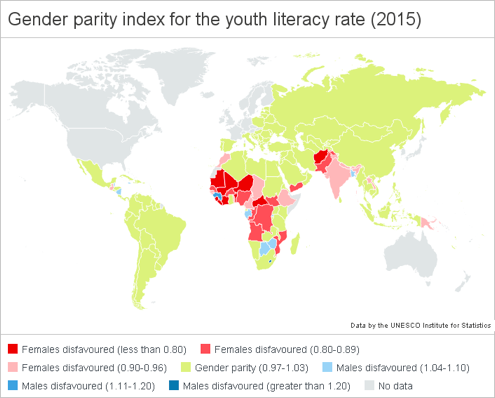
With this being the case for the upper echelons of society, one can imagine how the poor and rural citizens have it. The Annual Health Survey of just few years back in 2013 shows that 6 out of 10 girls states like Bihar, Jharkhand and Rajasthan are victims of child marriage! When BOS first meet and interacted with Veena Anjanappa in Chikmagalur district of Karnataka, she was an international karate champion with over 10 international and 15 national medals. She is also the recipient of the honorable Kittur Rani Channamma state award in 2014. Despite having won such accolades for our country and her state, she still had to pass up a lot of opportunities as she could not, financially afford to enter into any national championships for 3 years. She was constantly getting ridiculed by government officials, she used to be sent away or be given false promises of release of sponsorships to support her tournament costs. If we look at women’s representation in Sports in India, we are talking about the minority within the minority group. There is lack of widespread encouragement and support for girls to join sports from their families, school or society. To educate and popularize the idea of girls taking up sports as a profession in a society riddled with legacy issues is no mean task. But this is exactly what we aim to successfully accomplish.
Like Swetha Siddi, BOS has helped Yesumaria – a girl from a minority community of Siddis in Haliyala, by providing her with access to coaches, nutritionists and sports equipment. Yesumaria recently won the Gold medal at the district level for Shotput and Discus throw. Through coaches like Rekha Rodrigues (Below she is with her students, who won at taluk level athletics meet), who has been with the organisation since the beginning, BOS is able to create platforms for training of all children together irrespective of their gender and ability. They are providing everything they need from sporting goods, coaching and conducting personality development workshops which help boost confidence.
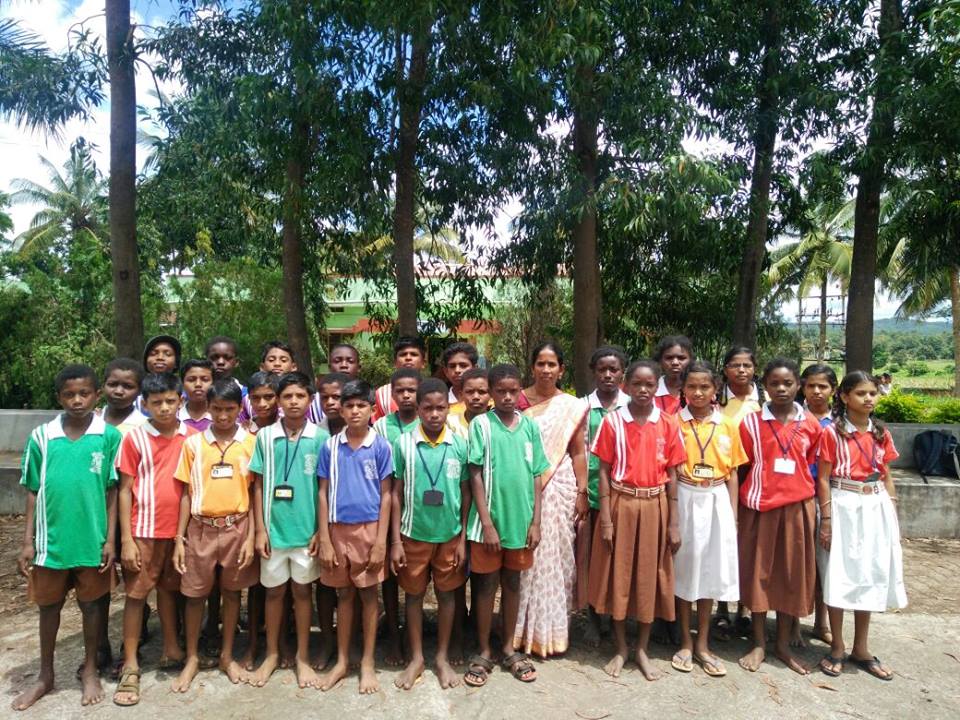
Coach Rekha Rodrigues with her students at the taluk level athletics meet
BOS realised Veena’s leadership potential when they noticed how she was getting girls shying away to train with the boys in BOS’s first Blind Football workshop at Asha Kiran Blind School, Chikmagalur on the eve of International day of sports for peace and development. She not only got the girls involved in training, but got them to believe the importance of integrating and engaging with the boys and the general society from a very young age. She now designs and leads the operations of BOS in Karnataka, and plays a pivotal part in shaping not just the future roadmap of BOS, but also the developing Indian Sports Ecosystem in a more equitable manner. After 3 years, she participated and won the gold medal in the National Games held in Delhi in May, 2017 and qualified for the 11th World Martial Arts Games in Florida.
This way BOS has been pivotal in recognising the potential in women with a passion for Sports and giving them a chance to shape their and India’s future. 60% of BOS’ strategic leadership comprises of women and 40% of all children being trained are girls. It is BOS’ strong belief that for our country to prosper in the direction of creating a sustainable future for itself, we need to create and support opportunities for its women to flourish.
Through use of sports, we will provide girls safe access to public spaces which might have been mostly male dominated bring in systemic changes in their acceptance into communities. Providing them better skill and encouraging their involvement in coaching and refereeing will have a multiplier effect on providing women opportunities, to make life transitioning decisions at all levels of the community.
The article was first published by our friends at The Logical Indian


